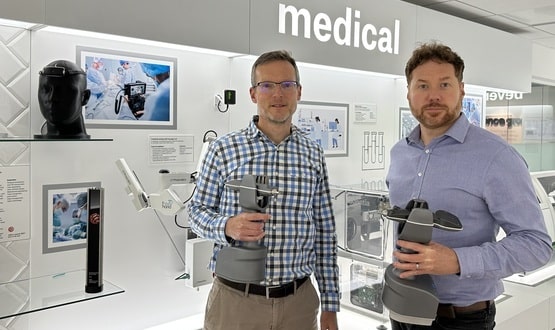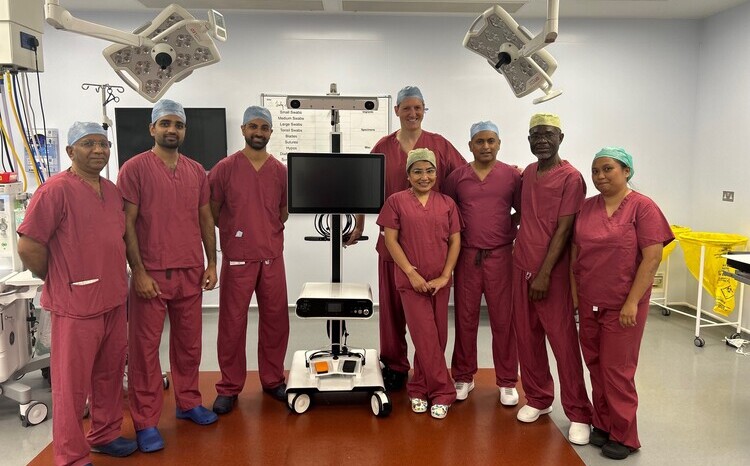THINK Surgical miniature robotic system gains FDA clearance
- 1 June 2023

THINK Surgical, Inc. has announced that its TMINI Miniature Robotic System has received 510(k) clearance from the US Food and Drug Administration.
The system, developed with Sagentia Innovation, includes a wireless robotic handpiece to help surgeons perform total knee replacements, replacing many of the instruments currently used for knee replacement surgery.
It uses a CT-based, three-dimensional surgical plan to automatically compensate for surgeon hand movement to locate bone pins along precisely defined planes. Cutting guides are then connected to the bone pins for accurate bone resection.
Stuart Simpson, THINK Surgical CEO, said: “We are delighted that the TMINI system has received 510(k) clearance from the FDA. We are now in a position to bring this exciting product to market.
“The TMINI system really changes THINK Surgical’s position in the marketplace. It allows us to focus on the adoption of robotic technology into the majority segment of the market. By offering an easy-to-use, miniature robot, we can open up a whole new segment of the market, improving accessibility to more patients.”
THINK Surgical has taken an open implant library approach and will continue to add new implant options to the platform in the future.
The company selected Sagentia Innovation to support key aspects of the TMINI system’s development. Tim Frearson, Sagentia Innovation TMINI project manager, said: “We supported THINK Surgical in very specific aspects of the TMINI system’s technical development to achieve target outcomes. Many of these related to critical factors such as ease of use, meeting sterilisation needs, and enhancing battery and power management.”
With FDA clearance granted the TMINI system has the potential to further push robotic-assisted surgery (RAS) forwards, thanks to its small footprint, open implant platform and intuitive workflow.
We are increasingly seeing surgeons assisted by robots with laser precision, thanks to the many benefits RAS can deliver. Last year, NHS Highland revealed it had been able to cut the length of hospital stays by as much as half for some patients, while also reducing the risk of post-surgical complications after it introduced surgical robots.





